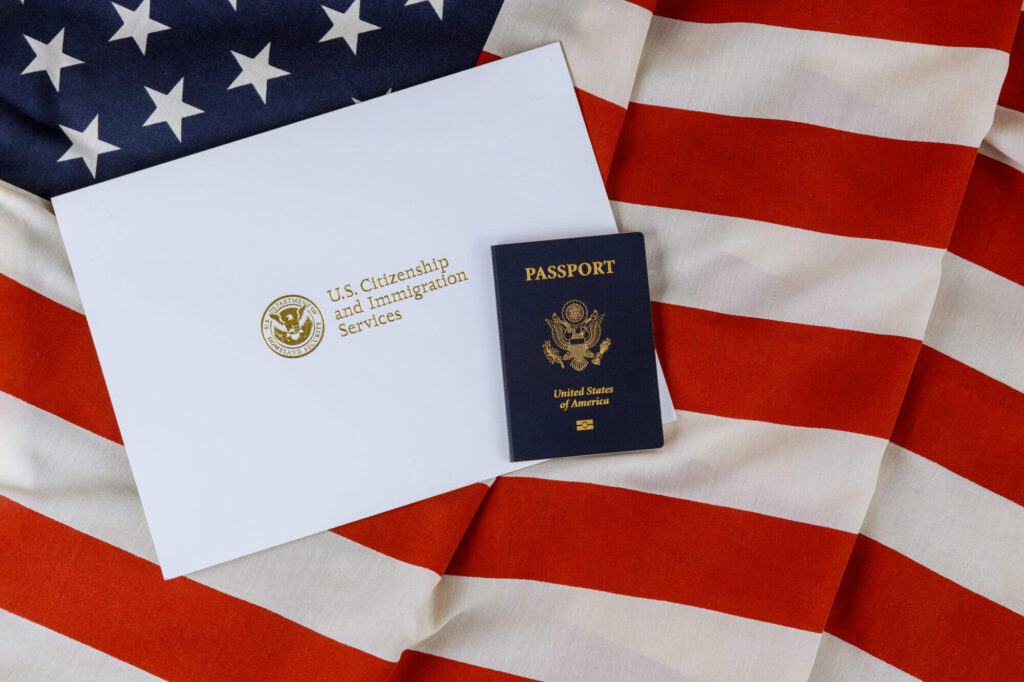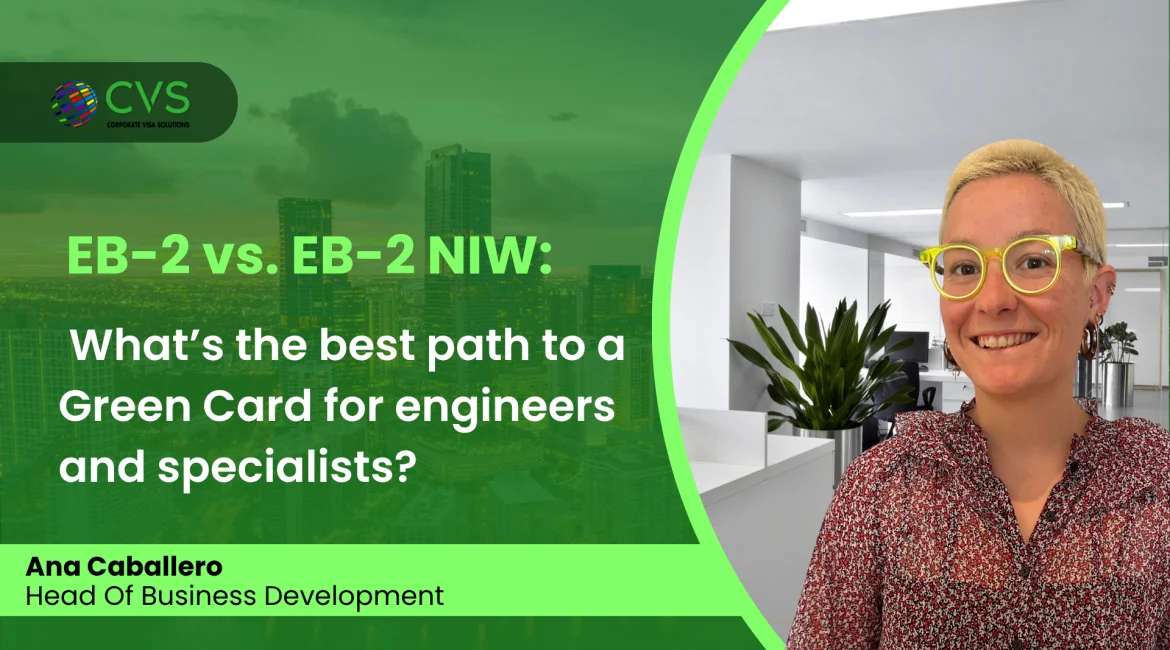EB-2 vs. EB-2 NIW: Which U.S. immigration path fits your skilled workforce?
For companies sending engineers and highly skilled professionals to the United States, choosing the right immigration path is a strategic decision. When it comes to employment-based Green Cards, the debate often centers around one key comparison: EB-2 vs. EB-2 NIW.
Both options fall under the EB-2 category but differ in requirements, timelines, and flexibility. This article breaks down the two paths to help HR, legal, and mobility teams determine the best option based on company needs and candidate profiles.
In this article, we outline what makes a petition strong—and what UK entrepreneurs and investors should avoid when preparing their application for the E2 visa.
What is the EB-2 visa and how can it help employers?
The EB-2 Visa is designed for professionals with advanced degrees or exceptional ability in their field. It is commonly used by companies to hire foreign engineers, IT specialists, scientists, and other qualified personnel for long-term roles in the U.S. To qualify, applicants typically need:- A master’s degree or equivalent, or
- A bachelor’s degree plus five years of progressive work experience.
EB-2 NIW visa: A strategic option for specialized talent
The EB-2 NIW Visa (National Interest Waiver) is a subcategory of the EB-2 classification that allows highly qualified professionals to self-petition for a Green Card. It eliminates the need for a job offer and labor certification, as long as the applicant can prove that their work benefits the national interest of the United States. To succeed with an NIW petition, the candidate must demonstrate:- The work has substantial merit and national importance.
- The applicant is well positioned to advance the work.
- Waiving the job offer requirement would benefit the U.S.

EB-2 vs. EB-2 NIW: Side-by-side comparison
| Feature | EB-2 Visa | EB-2 NIW Visa |
|---|---|---|
| Job offer required | Yes | No |
| Labor certification (PERM) | Yes | No |
| Employer involvement | High | None required |
| Best for | Long-term positions | Strategic or research-driven talent |
| Processing control | Employer-led | Self-petitioned |
While the EB-2 Visa gives companies full control of the process, the EB-2 NIW empowers top-tier talent to secure a Green Card independently. Choosing between them depends on the role’s nature, your workforce planning strategy, and the candidate’s long-term goals.
For firms already navigating U.S. immigration options, these two EB-2 paths offer distinct advantages depending on how the candidate fits into your organization’s growth.
Choosing the right path for your company
If your goal is to secure foreign engineers or specialists in predictable, long-term roles, the EB-2 Visa remains the most straightforward and employer-controlled option.
On the other hand, the EB-2 NIW Visa is ideal when:
- The role is project-based, research-driven, or highly specialized.
- The candidate’s work aligns with national U.S. interests.
- You need flexibility without sponsoring directly.
Companies experienced in hiring through investment or executive categories often include the EB-2 NIW in their broader mobility strategy for key technical profiles.
Final thoughts: EB-2 vs. EB-2 NIW for skilled professionals
Both EB-2 options can be excellent pathways to permanent residency for highly qualified professionals. Whether you choose a traditional EB-2 process or leverage the National Interest Waiver, aligning the visa strategy with your business model and the candidate’s role is critical.
At Corporate Visa Solutions, we help businesses like yours design tailored U.S. immigration strategies that support long-term growth, compliance, and talent retention.
Looking to evaluate the best EB-2 strategy for your technical workforce? Talk to our expert team today and let’s design a plan that matches your international mobility goals.
Looking to explore more strategic US visa options? Take a look at these related insights:
L1B visa mistakes UK companies should avoid and how to fix them
Why the E-2 visa for UK citizens is a strategic tool for business expansion in the US
L1B visa mistakes UK companies should avoid and how to fix them




